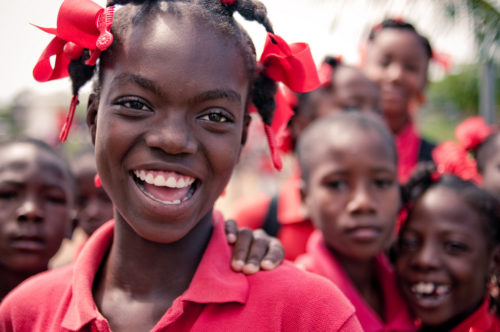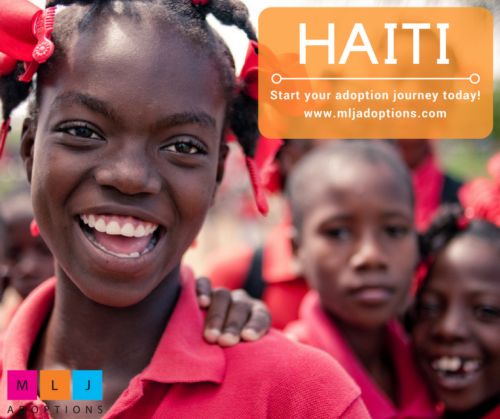 Following Haiti’s violent earthquake in January 2010, a massive outpouring followed of prospective adoptive families reaching out to adoption agencies seeking information on how to help by adopting Haiti’s orphaned children. The phone calls were non-stop, and the switchboards could not handle the numbers of calls coming in. So many families wanted to adopt from Haiti. Those of us working in the adoption community were touched by this show of sympathy and love from families wanting to open their hearts and homes to Haiti’s vulnerable children.
Following Haiti’s violent earthquake in January 2010, a massive outpouring followed of prospective adoptive families reaching out to adoption agencies seeking information on how to help by adopting Haiti’s orphaned children. The phone calls were non-stop, and the switchboards could not handle the numbers of calls coming in. So many families wanted to adopt from Haiti. Those of us working in the adoption community were touched by this show of sympathy and love from families wanting to open their hearts and homes to Haiti’s vulnerable children.
It has now been over seven years since this devastating disaster, the intense media coverage has ceased, and the switchboards have gone quiet. However, the need for adoptive families continues. There is still devastation in Haiti; the country is too poor to repair much of the damage caused by the earthquake, and poverty is still pervasive. Haiti continues to be the poorest country in the Western Hemisphere, and its orphaned children continue to be the most vulnerable and at risk. There are still children in need of forever families in Haiti.
Currently, there is a great need in Haiti for adoptive parents interested in adopting children considered hard-to-place. After meeting with representatives of Haiti’s adoption authority, the Institut du Bien Etre Social et de Recherches (more commonly known as IBESR,) it was shared that there is a need for adoptive families willing to adopt children and sibling groups ages four and older. This need results from the fact that the majority of adoptive families generally wish to adopt children as young as possible, usually between the ages of 0 to 3 years of age. Because most parents begin their adoption journey focused on adopting a younger child, older children get left behind, resulting in the creches (orphanages in Haiti) bursting at the seams with children ages four and older. These children deserve a home and a family, too! The need continues, but the need now has now shifted to families open to children and sibling groups ages four and older to adopt from Haiti.
Another void that needs to be filled in Haiti concerns the adoption of special needs children. In Haiti, children with medical needs or disabilities are often abandoned because birth parents fear they will be ostracized. Additionally, these children are looked upon as it they are “touched” by a demon due to their disability; this is largely because of the influence of the voodoo culture. Children with disabilities are not generally allowed to attend school, and are afforded little in the way of medical treatment.
We expect to see children with the following medical needs: children with missing limbs (due to the earthquake), children with deformities due to birth defects, hearing or vision impairments, mild, moderate to severe cerebral palsy, HIV, Sickle Cell Trait and Anemia.
When considering a child with an additional medical need, you should always consult with a physician, preferably one familiar with international adoption, to educate yourself on the impact of adopting a child with those needs. Some things to take into consideration when considering a child with a medical need:
- What the level of care will the child need once you bring them home?
- Do you have healthcare providers and resources nearby that will be able to meet the child’s medical needs?
- Does your insurance provide adequate coverage for the care needed?
- How will the adoption and medical needs/treatment of this child impact your existing children and family?
If you are looking to adopt from Haiti, please consider adopting a child age 4 or older, and/or adopting a child with an additional medical need. These children deserve the love and safety of a family, too!
If you’re interested in learning more about how to adopt from Haiti, contact us.

Photo Credit: Dan Lundmark
